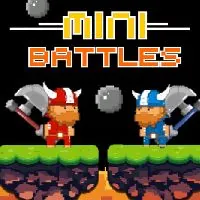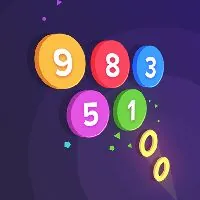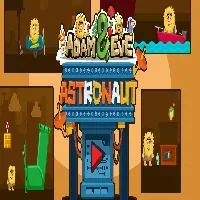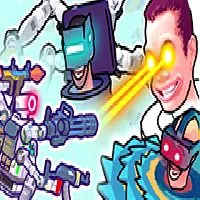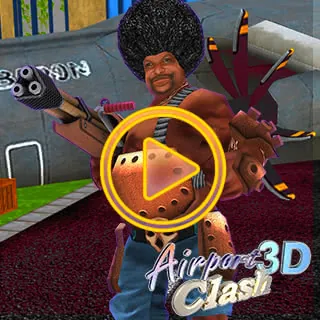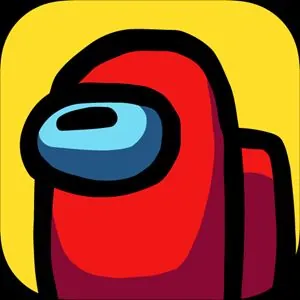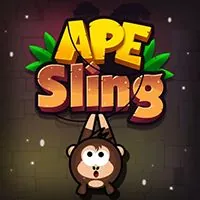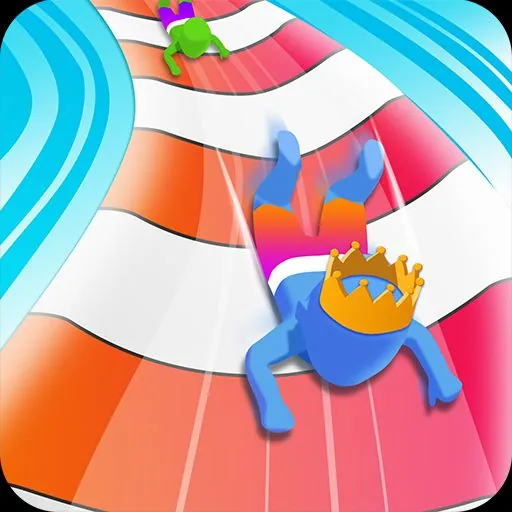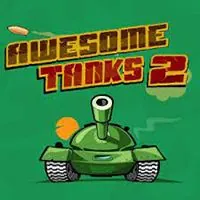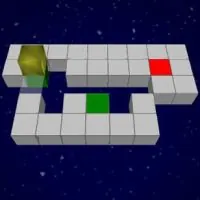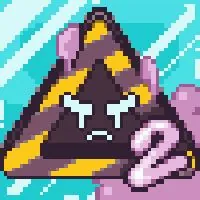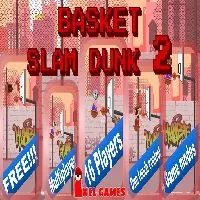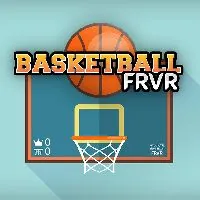DIGGY
SIMILAR GAMES
Description
Diggy - GitLab Games
About Diggy - GitLab Games
We are thrilled to present Diggy - GitLab Games, a comprehensive exploration into the exciting world of competitive coding and collaborative development challenges, all within the robust ecosystem of GitLab. Our platform is designed to foster innovation, sharpen technical skills, and build strong communities through engaging, project-based contests. This initiative leverages the powerful features of GitLab to create a unique and rewarding experience for developers of all levels. We aim to provide a space where creativity meets code, and where the spirit of friendly competition drives remarkable outcomes.
The inception of Diggy - GitLab Games stems from a desire to bridge the gap between theoretical knowledge and practical application in software development. We recognize that the most effective learning often occurs through hands-on experience, problem-solving, and the challenge of bringing innovative ideas to life. By utilizing GitLab, we tap into a platform renowned for its collaborative workflows, advanced version control, and integrated DevOps capabilities. This synergy allows us to host challenges that are not only technically demanding but also reflect real-world development scenarios.
The Core Philosophy Behind Diggy - GitLab Games
Our underlying philosophy is built on several key pillars: collaboration, innovation, learning, and community. We believe that the best solutions emerge when individuals and teams work together, sharing ideas and building upon each other's strengths. Diggy - GitLab Games is structured to encourage this collaborative spirit, whether participants are working individually or as part of a team. Innovation is at the heart of every challenge; we present problems that require creative thinking and novel approaches to software development.
Furthermore, we view these games as an unparalleled learning opportunity. Participants will gain practical experience with cutting-edge tools and methodologies, refine their debugging and problem-solving skills, and learn to manage complex projects effectively within a structured environment. The community aspect is equally vital. We strive to create a supportive and engaging atmosphere where developers can connect, share their experiences, and learn from one another. This is more than just a competition; it's a burgeoning ecosystem for growth and development.
Understanding the GitLab Ecosystem for Competitive Development
GitLab, as the foundational platform for our games, offers an incredibly rich set of features that enhance the competitive development experience. Its integrated approach to the entire DevOps lifecycle—from planning and coding to testing, deployment, and monitoring—provides a robust framework for our challenges. Participants will find themselves navigating and utilizing features such as Git repository management, issue tracking, CI/CD pipelines, merge requests, and code reviews.
The Git repository management system is central to how projects are shared and versioned. Every participant or team will manage their code within a dedicated GitLab repository, allowing for meticulous tracking of changes, easy rollback to previous versions, and a clear history of development. This mirrors standard industry practices and prepares participants for professional environments.
Leveraging CI/CD for Automated Testing and Deployment
One of the most powerful aspects of GitLab that we integrate into our games is its Continuous Integration/Continuous Deployment (CI/CD) capability. Participants are encouraged, and often required, to set up CI/CD pipelines for their projects. This means that every time code is committed or a merge request is opened, automated tests are run, and potentially, the application is deployed to a staging environment. This automates the testing process, providing immediate feedback on code quality and functionality.
For Diggy - GitLab Games, this translates to more efficient and objective judging. Pipelines can be configured to run unit tests, integration tests, static code analysis, and security scans. Successful pipeline runs often serve as a prerequisite for code to be considered for evaluation, ensuring a baseline level of quality and adherence to project requirements. This feature not only streamlines the evaluation process but also instills best practices in participants regarding automated testing and deployment strategies.
Structure and Types of Diggy - GitLab Games Challenges
Our challenges are meticulously designed to cater to a variety of skill sets and interests within the software development landscape. We typically categorize challenges into several types, ensuring broad appeal and diverse opportunities for engagement.
Project-Based Development Challenges
These are our flagship challenges, requiring participants to build a complete software project from conception to a functional prototype. The scope can vary widely, from developing a new web application feature, creating a data visualization tool, to building a small-scale automation script. Participants are given a clear set of requirements, constraints, and evaluation criteria. Success in these challenges is measured by factors such as functionality, code quality, user experience, performance, and the effective use of GitLab features throughout the development process.
For instance, a typical project-based challenge might involve creating a microservice that integrates with a specific API, where the participant must design the service architecture, implement the core logic, write comprehensive tests, and deploy it using a GitLab CI/CD pipeline. The project needs to be well-documented within the GitLab repository, and the code should follow established coding standards.
Bug Squashing and Code Refinement Contests
Beyond building new projects, we also host challenges focused on improving existing codebases. These might involve identifying and fixing bugs in a provided application, refactoring code to enhance its readability and maintainability, or optimizing performance bottlenecks. These contests are invaluable for honing debugging skills and understanding the nuances of code quality. Participants are often provided with a repository containing a codebase with intentional issues, and their task is to resolve these issues effectively, demonstrating their analytical prowess and attention to detail.
The evaluation criteria for bug-squashing contests often include the accuracy of the fix, the elegance of the solution, the impact on system stability, and the documentation of the changes made via merge requests. Code refinement challenges focus on metrics like reduction in complexity, improvement in test coverage, and adherence to coding style guides.
Collaborative Feature Development Sprints
In recognition of the importance of teamwork in modern software development, we frequently organize collaborative feature development sprints. In these events, participants are grouped into teams and tasked with developing a specific feature or set of features for a larger, hypothetical project. This simulates a real-world agile development environment, emphasizing communication, task delegation, and effective merging of contributions. Participants learn to manage merge conflicts, conduct thorough code reviews, and ensure cohesive development across team members.
The success of these sprints is judged not only on the technical merit of the developed features but also on the team's ability to collaborate effectively. This includes the quality of their commit messages, the frequency and clarity of their communication within the GitLab issue tracker, and the efficiency of their merge request process. We often award points for exemplary teamwork and efficient project management.
The Role of GitLab Features in Enhancing the Games
The integration of GitLab is not merely incidental; it is fundamental to the design and execution of Diggy - GitLab Games. Every aspect of the competition is amplified by the platform's sophisticated features.
Version Control and Branching Strategies
At the core of every development project lies version control. GitLab's Git-based system empowers participants to manage their code with precision. They learn to utilize different branching strategies (e.g., Gitflow, feature branching) to isolate their work, experiment with new ideas without disrupting the main codebase, and collaborate seamlessly. The ability to create, merge, and rebase branches is a critical skill that is naturally reinforced through participation in our games.
We emphasize the importance of clear and descriptive branch names and commit messages. This practice not only aids in the organization of individual projects but also promotes better understanding and collaboration within teams. Participants are encouraged to develop robust branching strategies that align with the project's complexity and the team's workflow.
Merge Requests and Code Reviews
The merge request (MR) functionality in GitLab is a cornerstone of our collaborative challenges. MRs serve as the mechanism for proposing changes, initiating discussions, and undergoing code reviews. Participants learn to craft compelling MRs that clearly explain the purpose of their changes, the steps taken to implement them, and how to test them. The subsequent code review process, where team members or designated reviewers examine the proposed changes, is crucial for maintaining code quality, identifying potential bugs early, and knowledge sharing.
We train participants on how to provide constructive and actionable feedback during code reviews. This includes looking for adherence to coding standards, potential performance improvements, security vulnerabilities, and overall code clarity. A well-executed merge request and review process is often a significant factor in the overall evaluation of a participant's contribution.
Issue Tracking and Project Management
GitLab's integrated issue tracking system provides a centralized platform for managing tasks, bugs, feature requests, and project planning. Participants are guided to use issues to break down complex problems into smaller, manageable tasks. Milestones can be used to set deadlines and track progress towards larger goals. The ability to link commits and merge requests directly to issues provides a transparent and traceable development workflow.
Effective use of issue tracking allows teams to visualize their progress, identify bottlenecks, and manage their workload efficiently. This feature fosters accountability and ensures that all aspects of a project are being addressed systematically. For Diggy - GitLab Games, this means participants gain practical experience in agile project management methodologies.
Container Registry and CI/CD Integration
For more advanced challenges, we integrate GitLab's Container Registry and leverage its powerful CI/CD capabilities to manage containerized applications. Participants may be tasked with building Docker images for their applications, pushing them to the registry, and setting up pipelines to automatically build, test, and deploy these containers. This aspect of Diggy - GitLab Games exposes participants to modern deployment practices and the benefits of containerization for creating consistent and portable development environments.
The seamless integration between the Container Registry and CI/CD pipelines allows for automated build and deployment workflows, ensuring that applications can be deployed consistently across different environments. This is a critical skill in today's cloud-native development landscape.
Benefits of Participating in Diggy - GitLab Games
Engaging with Diggy - GitLab Games offers a multitude of benefits for developers, ranging from skill enhancement to career advancement.
Sharpening Technical Proficiencies
The core objective of our games is to provide a rigorous environment for participants to sharpen their technical proficiencies. By tackling real-world problems and working with advanced tools like GitLab, participants will inevitably improve their coding skills, deepen their understanding of algorithms and data structures, and become more adept at debugging and problem-solving. The hands-on nature of the challenges ensures that learning is practical and directly applicable.
Participants will gain practical experience with languages, frameworks, and tools relevant to current industry demands. The iterative nature of development within the GitLab environment encourages continuous learning and adaptation, making participants more versatile and capable developers.
Building a Strong Portfolio and Demonstrating Skills
Successfully completing challenges in Diggy - GitLab Games results in tangible projects that can be showcased in a participant's professional portfolio. The GitLab repositories themselves serve as evidence of their work, demonstrating their coding capabilities, project management skills, and understanding of development workflows. This is an invaluable asset for job seekers looking to stand out in a competitive market.
We encourage participants to document their projects thoroughly within their repositories, including README files that clearly explain the project's purpose, features, setup instructions, and the technologies used. This documentation, coupled with the code itself and the commit history, paints a comprehensive picture of a developer's abilities.
Networking and Community Engagement
Beyond the technical aspects, Diggy - GitLab Games provides a unique opportunity for networking and community engagement. Participants connect with like-minded individuals, form teams, share knowledge, and potentially build lasting professional relationships. Our platform fosters a supportive community where developers can exchange ideas, offer mentorship, and collaborate on future projects.
We actively encourage interaction through GitLab's issue tracking and comment features, as well as any associated community forums or discussion channels. This collaborative environment is designed to foster a sense of camaraderie and shared learning among all participants. Building connections within the developer community is an often-overlooked but crucial aspect of professional growth.
Gaining Experience with Professional Development Workflows
The challenges are structured to mirror the workflows found in professional software development teams. By participating, individuals gain invaluable experience with GitLab's integrated DevOps platform, including version control, CI/CD pipelines, code reviews, and issue tracking. This hands-on experience with industry-standard tools and methodologies significantly enhances their readiness for professional roles.
Understanding and effectively utilizing these tools is no longer a niche skill but a fundamental requirement for many development positions. Diggy - GitLab Games provides a low-stakes, high-reward environment to master these essential skills, giving participants a distinct advantage in their career trajectories.
How to Get Started with Diggy - GitLab Games
Embarking on your journey with Diggy - GitLab Games is a straightforward process designed to get you coding and competing as quickly as possible. We believe in making the barrier to entry as low as possible, while maintaining the integrity and challenge of the competitions.
Creating Your GitLab Account and Project Setup
The first step is to ensure you have a GitLab account. If you do not already possess one, you can easily create a free account on the GitLab platform. Once registered, navigate to our dedicated GitLab Games section. Here, you will find instructions on how to create a new project or join an existing one, depending on the challenge format. We provide detailed guidance on setting up your repository, including best practices for initial configuration and a basic README file.
We offer templates and starter projects for many of our challenges to help participants get off to a flying start. These templates often include pre-configured CI/CD pipelines and basic project structures, allowing participants to focus on the core development tasks from the outset.
Exploring Available Challenges and Registration
We regularly announce new challenges and competitions through our platform. Participants are encouraged to regularly visit the Diggy - GitLab Games portal to view the list of active and upcoming challenges. Each challenge page provides a detailed description, the specific objectives, the technical requirements, evaluation criteria, and the duration of the competition. Registration is typically done directly through the GitLab interface by forking a template repository or joining a pre-created group.
We aim to have a diverse range of challenges available at any given time, catering to various skill levels, from beginner-friendly introductions to complex, expert-level endeavors. Keep an eye on our announcements for the latest opportunities to test your skills.
Utilizing GitLab Resources for Learning and Support
We understand that participants may require assistance or wish to deepen their understanding of specific GitLab features or development concepts. To support this, we provide links to comprehensive GitLab documentation, tutorials, and best practice guides. Furthermore, our community forums and dedicated support channels are available to answer questions and foster peer-to-peer learning. We believe in empowering our participants with the knowledge and resources they need to succeed.
Our aim is to create a learning environment where participants can not only compete but also grow their expertise. We often curate resources that are directly relevant to the challenges at hand, ensuring that participants have access to the most pertinent information for their development journey.
The Future of Diggy - GitLab Games
Looking ahead, Diggy - GitLab Games is poised for significant growth and evolution. We are committed to continuously enhancing the participant experience and expanding the scope and impact of our initiatives. Our vision is to become a premier destination for competitive and collaborative software development, driving innovation and fostering a vibrant global community.
We plan to introduce increasingly complex and cutting-edge challenges, incorporating emerging technologies and industry trends. This includes exploring areas such as Artificial Intelligence, Machine Learning, Blockchain, and DevSecOps. Our goal is to stay at the forefront of technological advancements and provide participants with opportunities to work on projects that are relevant to the future of software engineering.
Expanding Challenge Variety and Technical Depth
Our roadmap includes a strategic expansion of challenge variety. We aim to introduce more specialized tracks, focusing on specific programming languages, cloud platforms, or industry domains. This will allow participants to hone their expertise in areas they are most passionate about. Furthermore, we will continually increase the technical depth of our challenges, pushing the boundaries of what is expected and encouraging participants to explore advanced architectural patterns and optimization techniques.
We are also exploring the possibility of incorporating real-world datasets and user feedback loops into some challenges, making them even more representative of actual product development cycles. This will provide a richer and more engaging experience for all involved.
Fostering Advanced Collaboration and Open Source Contributions
A significant part of our future vision involves fostering even deeper collaboration and encouraging participants to make open-source contributions. We aim to create pathways for successful projects or talented individuals emerging from Diggy - GitLab Games to transition into contributing to larger open-source initiatives. This not only benefits the broader technology ecosystem but also provides participants with unparalleled opportunities for growth and recognition.
We envision opportunities for participants to collaborate on sustained development efforts, potentially leading to the creation of new open-source tools or the enhancement of existing ones. This initiative underscores our commitment to contributing positively to the global developer community and advancing the principles of open collaboration.
Join us at Diggy - GitLab Games and be a part of this exciting journey towards shaping the future of software development. Explore, innovate, and compete within the powerful environment of GitLab.
Play Diggy for free on GitLab Games, where we offer a dynamic platform featuring thousands of the best unblocked games online. Our extensive library ensures pure enjoyment with an ad-free experience, keeping you immersed in the action without distractions. Accessible from school, work, or home, our Gitlab games deliver seamless fun anywhere you are. We’ve streamlined the experience—play effortlessly with your keyboard or a simple click, tailored to how you like to game. Dive into our collection of unblocked games, including popular categories like unblocked games 66, unblocked games wtf and cool math games Gitlab, and enjoy entertainment that’s always within reach and endlessly captivating.
